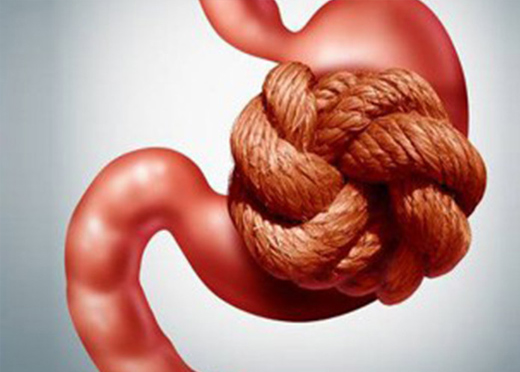Treatment
Treatment for chronic constipation usually begins with diet and lifestyle changes meant to increase the
speed at which stool moves through your intestines. If those changes don't help, your doctor may
recommend medications or surgery.
Diet and lifestyle changes
Your doctor may recommend the following changes to relieve your constipation:
- Increaseyourfiberintake.Addingfibertoyourdietincreasesthe weight of your stool and speeds its
passage through your intestines. Slowly begin to eat more fresh fruits and vegetables each day.
Choose whole-grain breads and cereals.
Your doctor may recommend a specific number of grams of fiber to consume each day. In general, aim
for 14 grams of fiber for every 1,000 calories in your daily diet.
A sudden increase in the amount of fiber you eat can cause bloating and gas, so start slowly and
work your way up to your goal over a few weeks.
- Exercisemostdaysoftheweek.Physicalactivityincreasesmuscle activity in your intestines. Try to fit in
exercise most days of the week. If you do not already exercise, talk to your doctor about whether
you are healthy enough to start an exercise program.
- Don'tignoretheurgetohaveabowelmovement.Takeyourtimein the bathroom, allowing yourself enough time to
have a bowel movement without distractions and without feeling rushed.
Laxatives
Several types of laxatives exist. Each works somewhat differently to make it easier to have a bowel
movement. The following are available over-the- counter:
- Fiber supplements. Fiber supplements add bulk to your stool.Bulky stools are softer and easier to pass.
Fiber supplements include psyllium (Metamucil, Konsyl, others), calcium polycarbophil (FiberCon,
Equalactin, others) and methylcellulose (Citrucel).
- Stimulants. Stimulants including bisacodyl(Correctol,Dulcolax, others) and sennosides (Senokot, Ex-Lax,
Perdiem) cause your intestines to contract.
- Osmotics. Osmoticlax atives help stool move through the colonby increasing secretion of fluid from the
intestines and helping to stimulate bowel movements. Examples include oral magnesium hydroxide
(Phillips' Milk of Magnesia, Dulcolax Milk of Magnesia, others), magnesium citrate, lactulose
(Cholac, Constilac, others), polyethylene glycol (Miralax, Glycolax).
- Lubricants. Lubricants such as mineraloil enable stool to move through your colon more easily.
- Stools of teners. Stools of teners such as docusate sodium(Colace) and docusate calcium (Surfak) moisten the
stool by drawing water from the intestines.
- Enemas and suppositories. Tap water enemas with or without soapsuds can be useful to soften stool and
produce a bowel movement. Glycerin or bisacodyl suppositories also aid in moving stool out of the
body by providing lubrication and stimulation.
Other medications
If over-the-counter medications don't help your chronic constipation, your doctor may recommend a
prescription medication, especially if you have irritable bowel syndrome.
- Medications that draw water into your intestines. Anumberof prescription medications are available to treat
chronic constipation. Lubiprostone (Amitiza), linaclotide (Linzess) and plecanatide (Trulance) work
by drawing water into your intestines and speeding up the movement of stool.
- Serotonin5-hydroxytryptamine 4 receptors. Prucalopride (Motegrity) helps move stool through the colon.
- Peripherallyactingmu-opioid receptorantagonists(PAMORAs).If constipation is caused by opioid pain
medications, PAMORAs such as naloxegol (Movantik) and methylnaltrexone (Relistor) reverse the effect
of opioids on the intestine to keep the bowel moving.
Training your pelvic muscles
Bio feedback training involves working with a therapist who uses devices to help you learn to relax and
tighten the muscles in your pelvis. Relaxing your pelvic floor muscles at the right time during
defecation can help you pass stool more easily.
During a biofeedback session, a special tube (catheter) to measure muscle tension is inserted into your
rectum. The therapist guides you through exercises to alternately relax and tighten your pelvic muscles.
A machine will gauge your muscle tension and use sounds or lights to help you understand when you've
relaxed your muscles.
Surgery
Surgery may be an option if you have tried other treatments and your chronic constipation is caused by a
blockage, rectocele or stricture.
For people who have tried other treatments without success and who have abnormally slow movement of stool
through the colon, surgical removal of part of the colon may be an option. Surgery to remove the entire
colon is rarely necessary.

